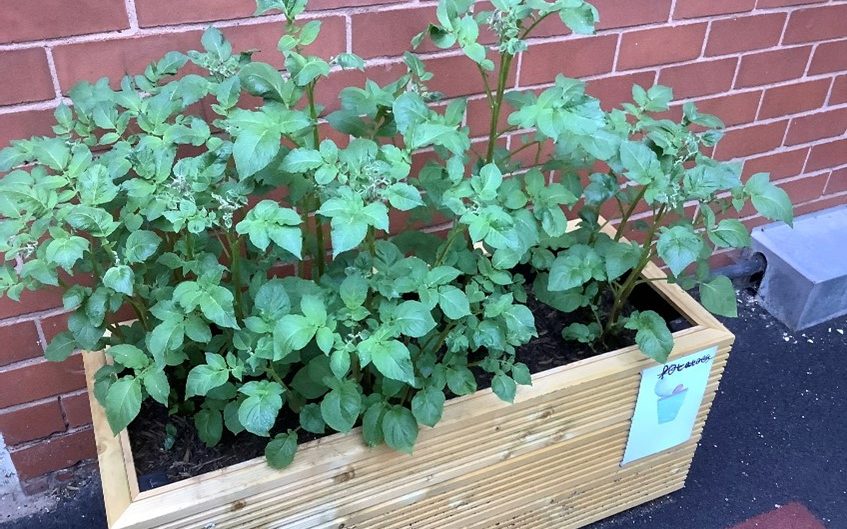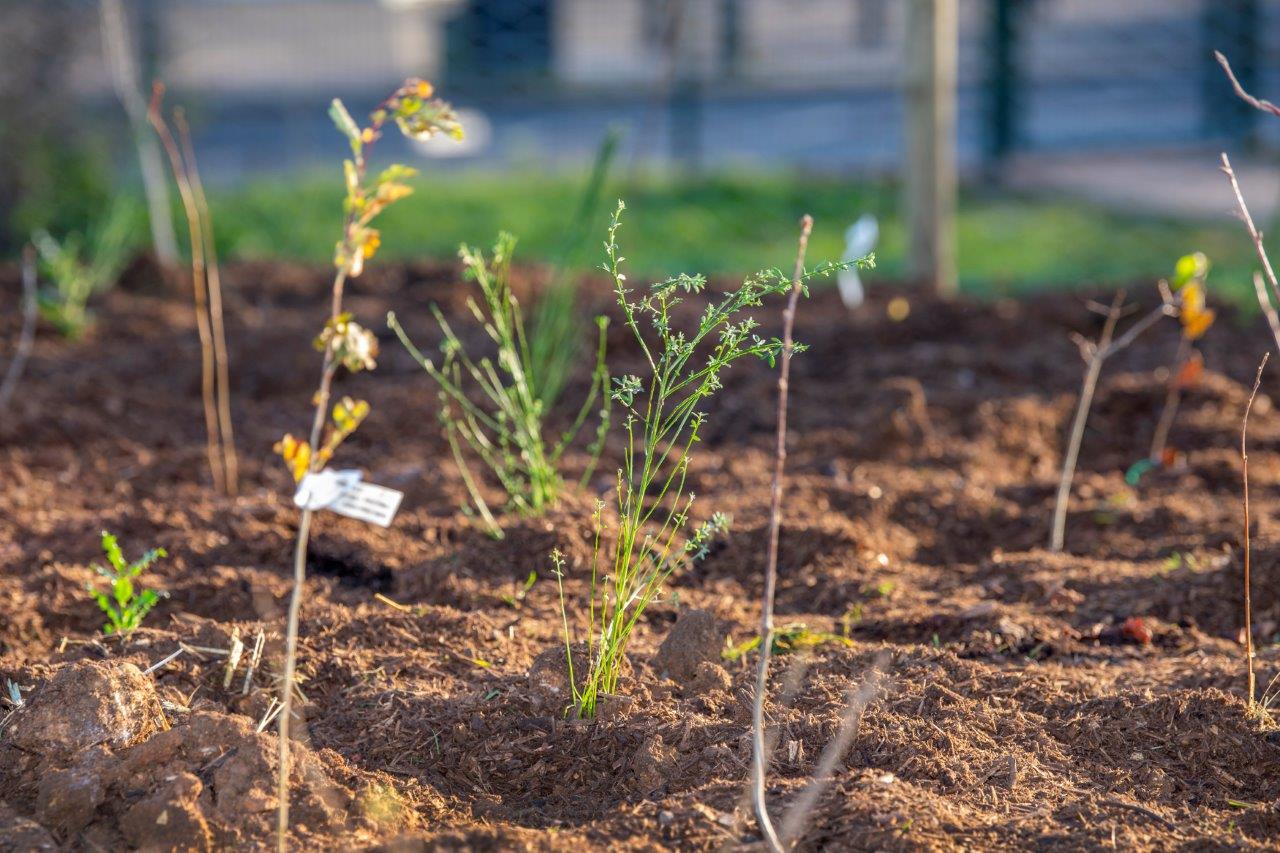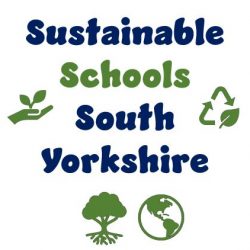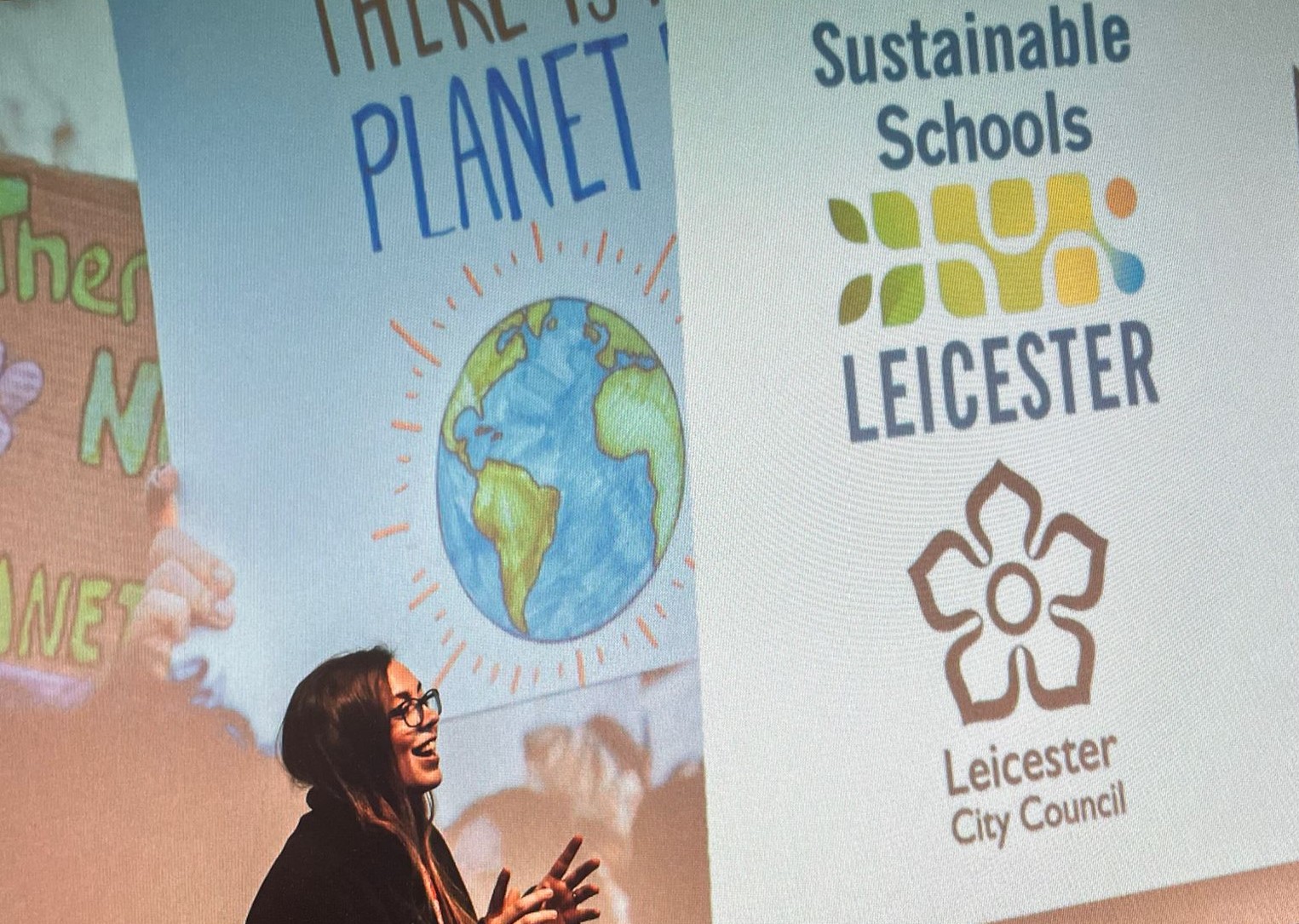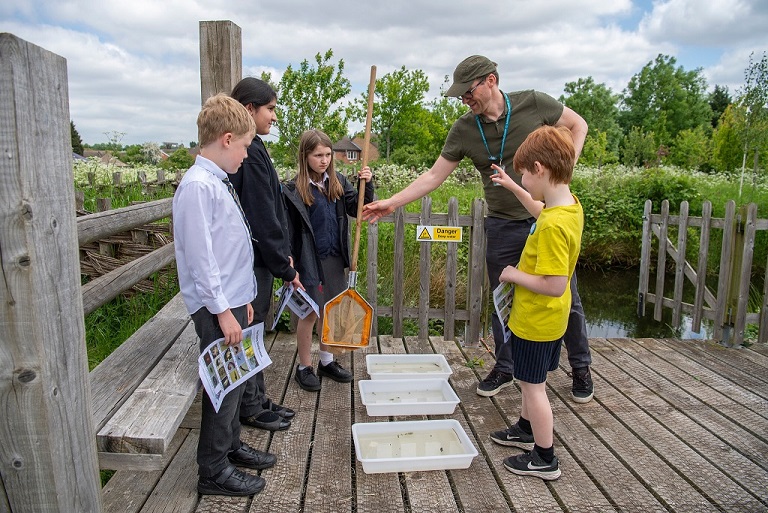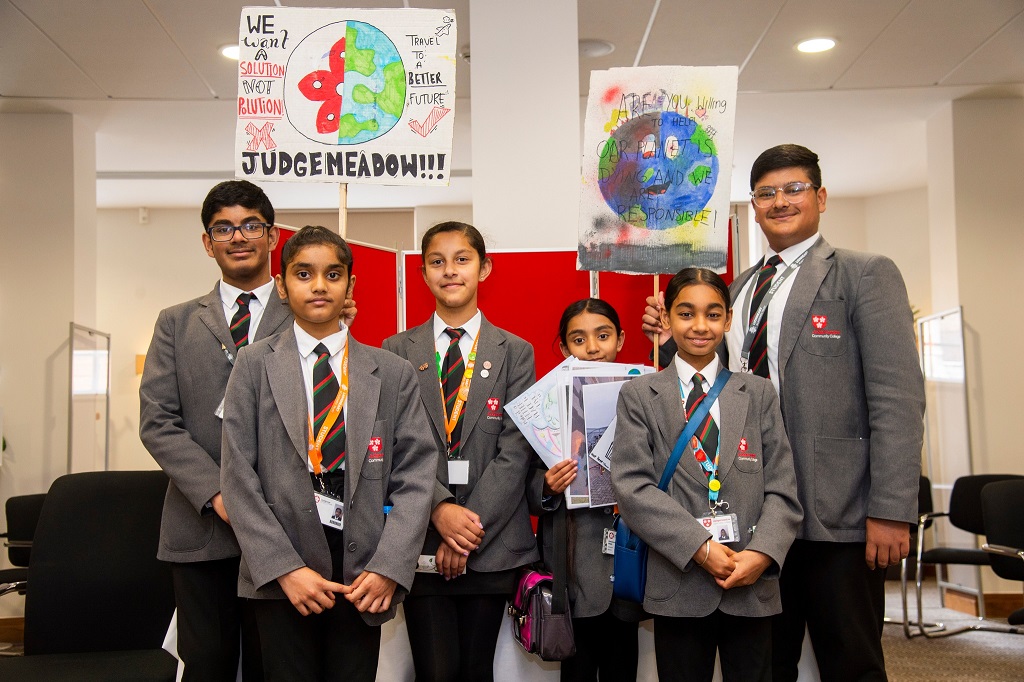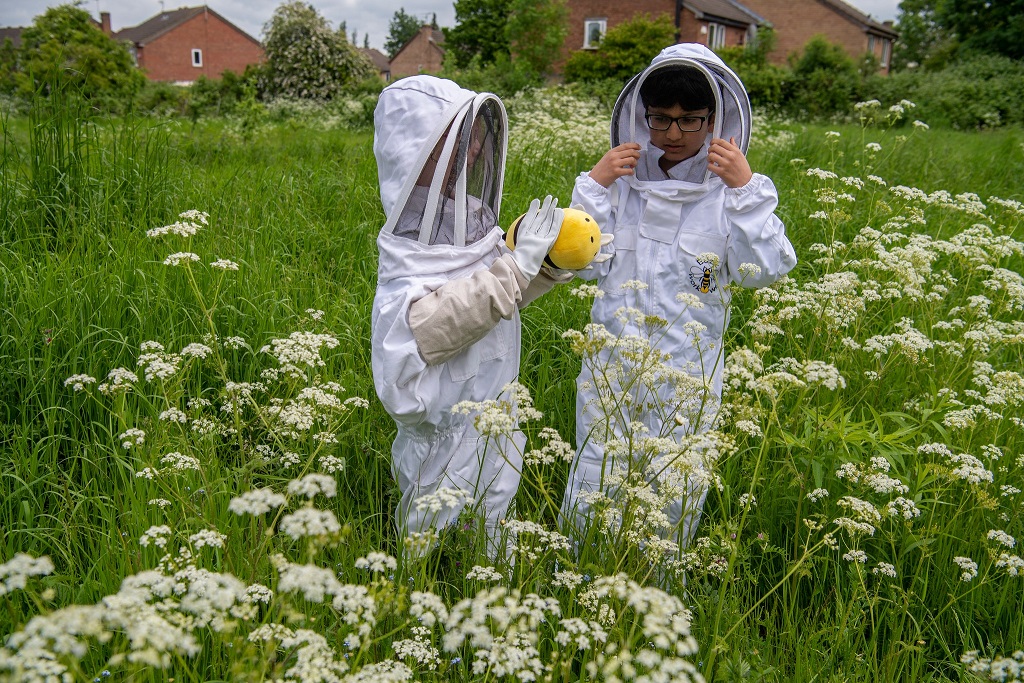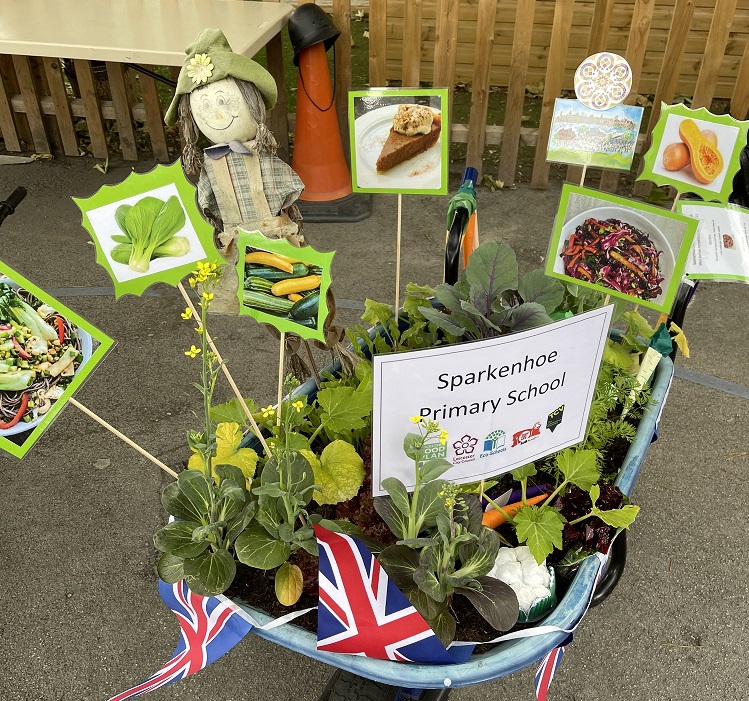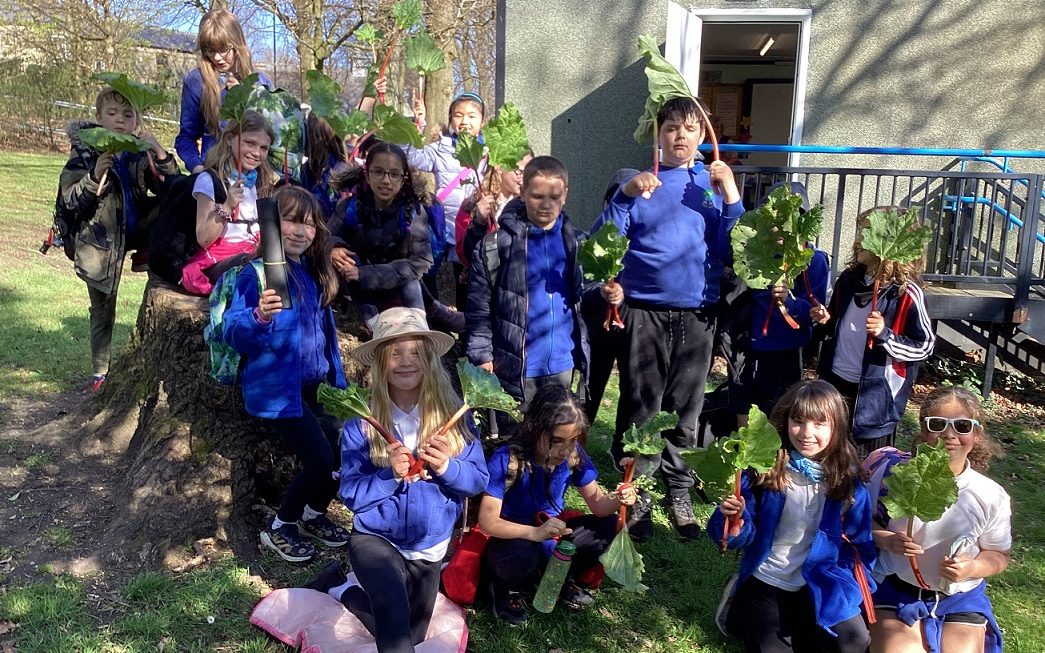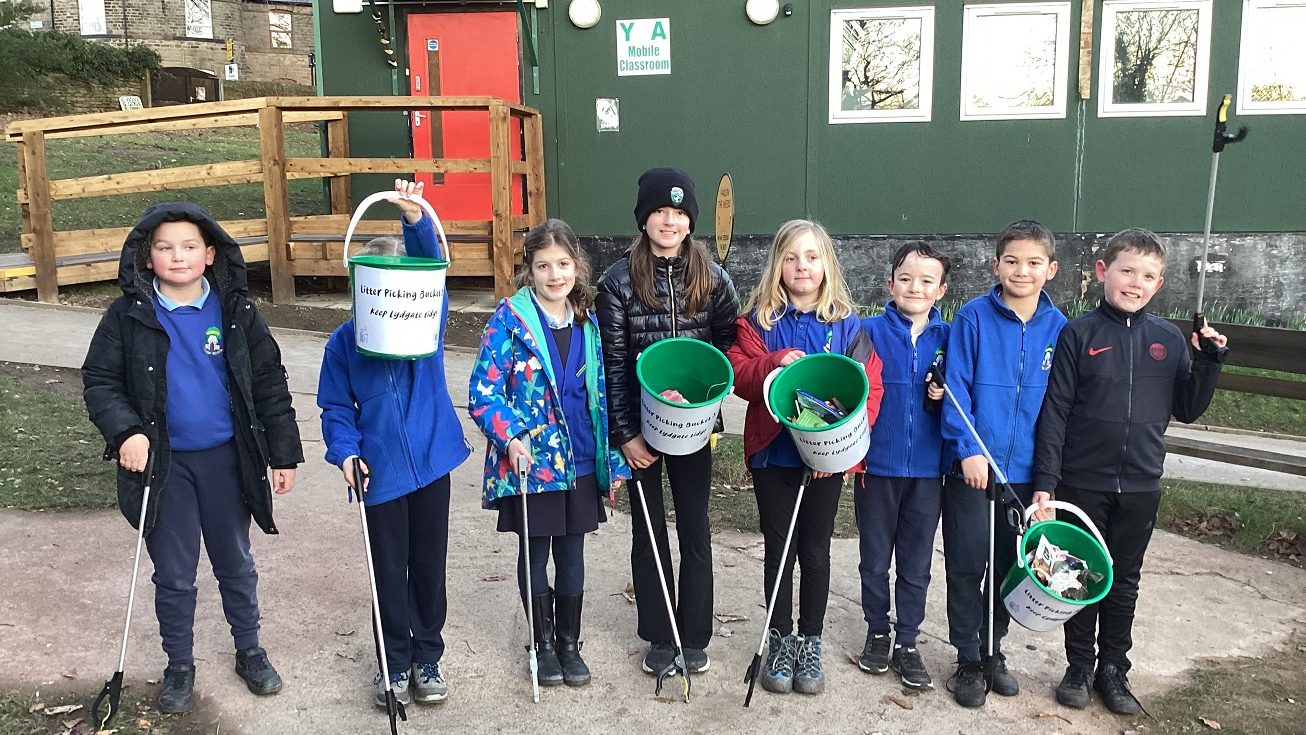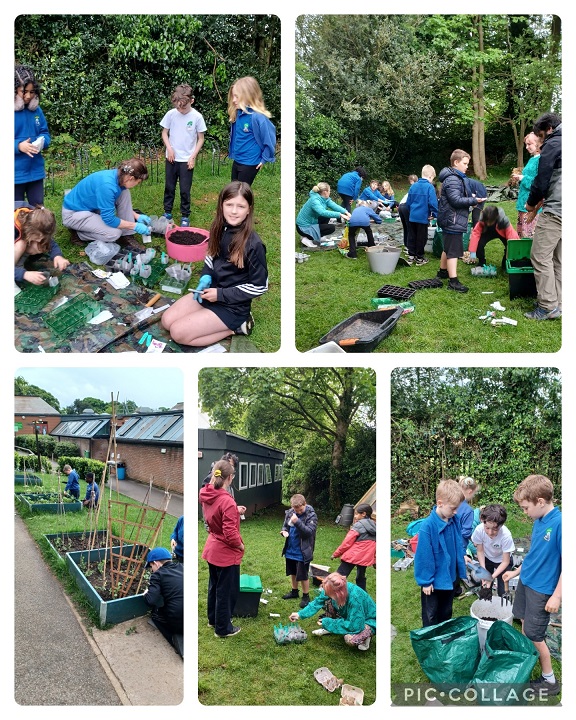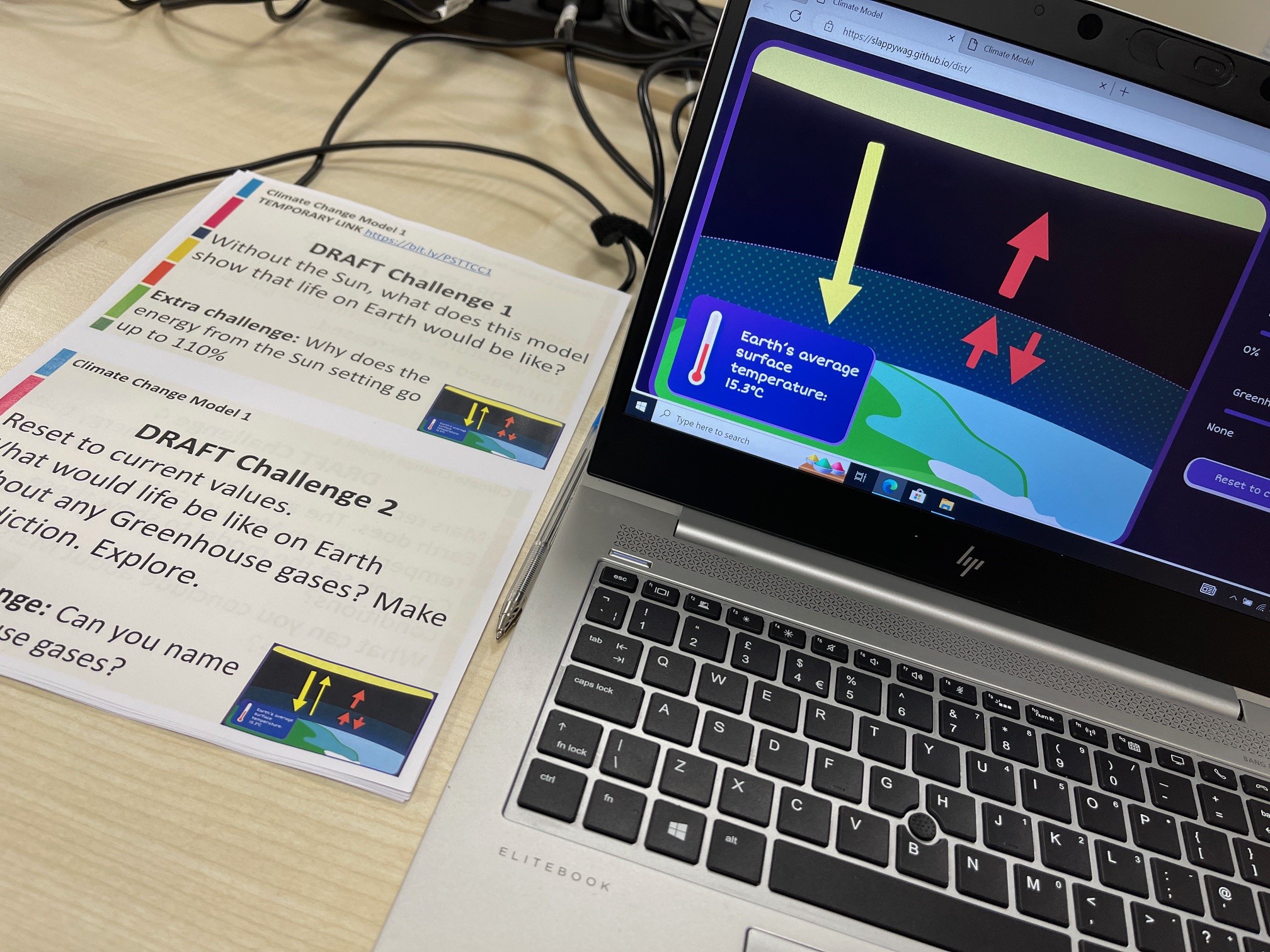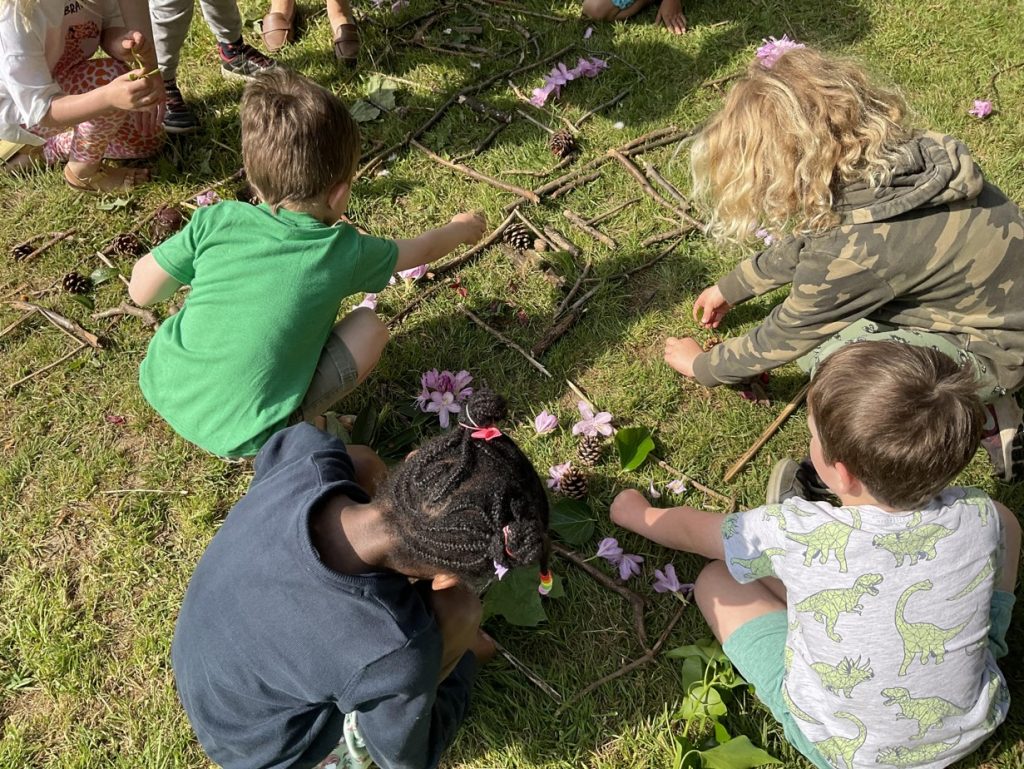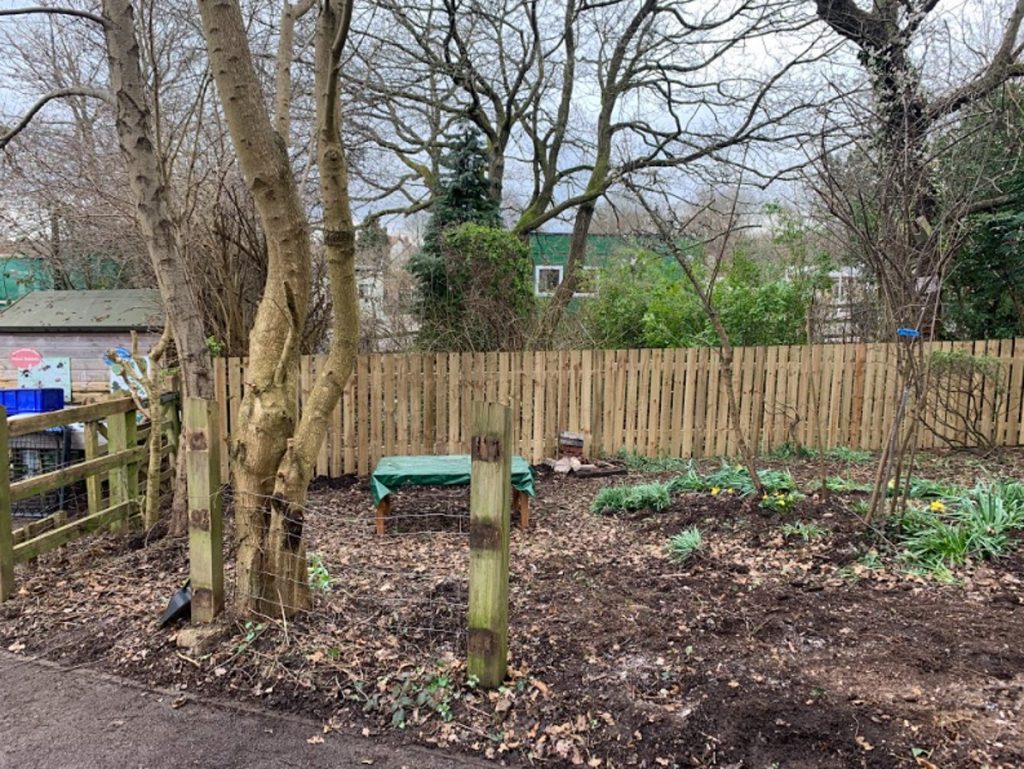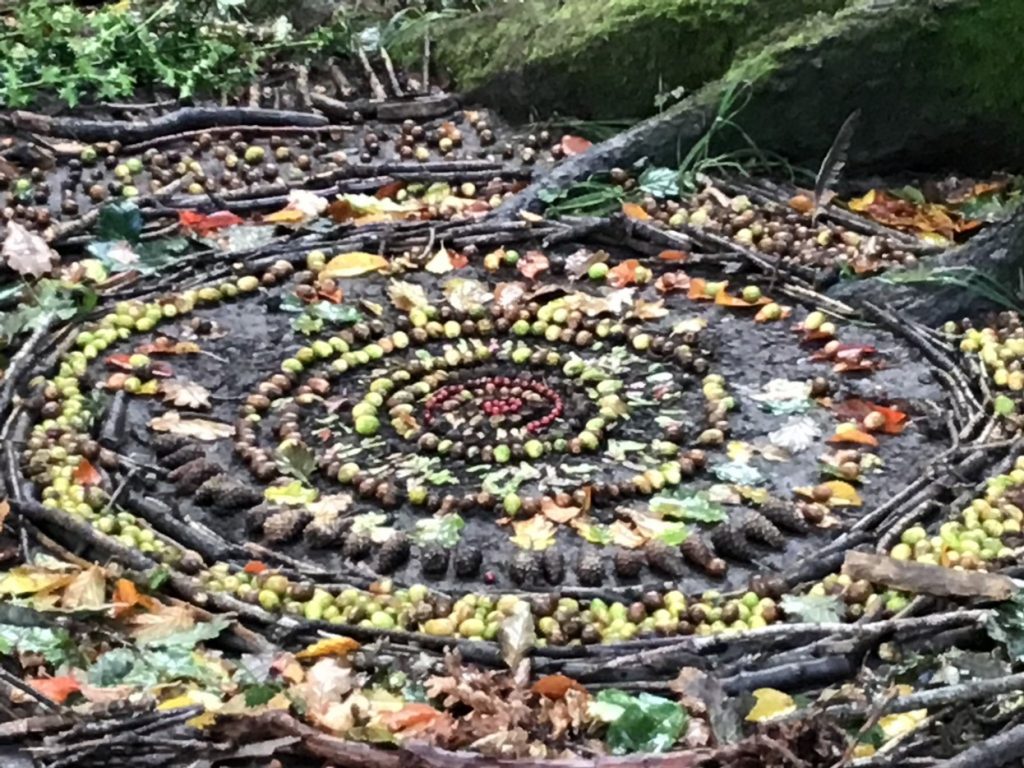Naina Platt is the eco-lead at Charnwood Primary School in an urban area of Leicester. We spoke to her about how the council’s Eco-Schools network is helping her teach her children about the importance of sustainability.

What are the climate-related responsibilities of your role?
I oversee making our school eco-friendly by educating the children about sustainability and what that means to us — looking after the environment, how we can use our planet’s resources in a sustainable, manageable way, and what renewable resources we can use.
Can you give us some background on your school?
We are a happy, open, thriving primary school. We have approximately 440 students, who come primarily from an ethnic minority, with about 96% of Islamic faith. Others come from European and Caribbean backgrounds. A lot of our children come into school with English as an additional language, and a lot of our children receive the pupil premium to help them out. We’ve also got quite a few with special educational needs and disabilities (SEND).
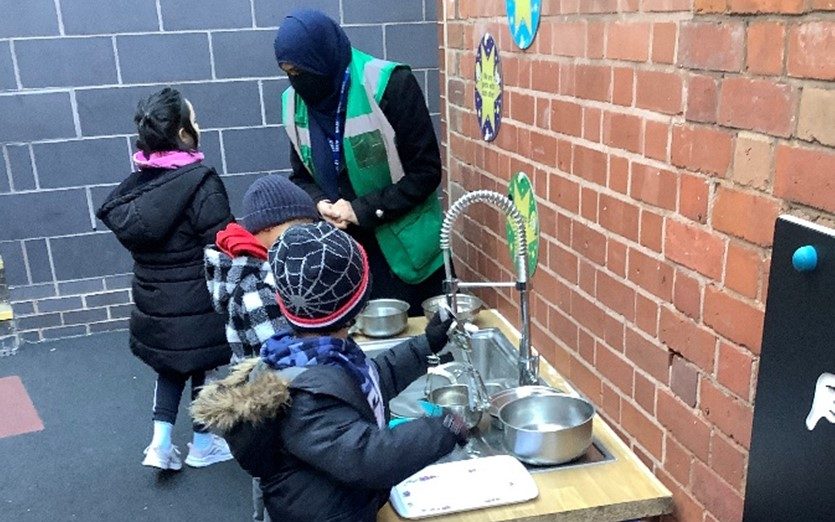
What sort of space do you have?
We are extremely limited with our school environment. Indoors, space is a big issue for us. We have our classrooms, but for any additional space we are really limited.
We are also tight on space outdoors. It is a concrete jungle — lots of tarmac which we’re trying to green over, and maybe just small spaces. Parts of the building are also Grade 2 listed so we are limited to what we can do, and even in the playground we have a World War Two bunker under the tarmac which has restricted us from doing certain things in terms of digging, for example. But we do try.
Why is sustainability important to you and your school?
It’s such a big issue for human beings. And communicating it to the younger generation is really important. The children at our school may not be aware of what sustainability or carbon footprints are. It’s important for us as a school to empower our children and help them grow up to be adults who can look after their own environment and the planet.
Have you had any training around sustainability or climate education?
Through the Leicester Eco-Schools network I took part in carbon literacy training, which was invaluable — just making you aware what a carbon footprint is and what we can do to reduce it, and how to pass that information onto staff and the children.
Leicester City Council and their whole sustainability team do a wonderful job in keeping school eco-leads informed about things like the Great Big Green Week, Switch off Fortnight and the Plastic Clever Schools initiatives.
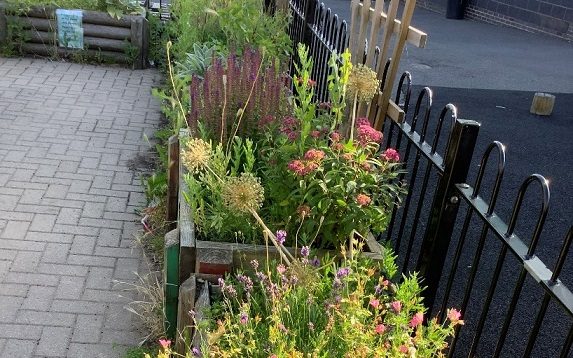
What activities have you undertaken, and what benefits have you seen?
We have a lovely green-fingered staff member who does a gardening club, which the children absolutely love. We maintain things in planters and grow things. That’s out of school hours.
During school hours, we have noticed that children with behavioural issues like to dig, so during play time they will be planting or weeding. We’ve noticed a difference in their behaviour — they’re a lot calmer and happier.
The other thing we’ve been involved in is the Urban Wildlife project. Children from primarily across Key Stage 2 learned about biodiversity. A man from the council visited and encouraged the children to think about how to encourage wildlife in the school grounds. And it’s a hard thing to do, especially in our concrete jungle. But they absolutely loved it.
The project lasted a good five to six months and saw the children planting and growing. They were given a pot of money to spend on equipment. They were monitoring the wildlife in the school grounds and they absolutely loved it. They showcased it often in assemblies so the whole school took part in that.
We are also part of the National Educational Nature Park project. We’ve received funding to green our spaces, and we’ve made links with our local community gardens. It’s very urban here, but there are pockets where green spaces are growing and thriving. It’s really important for our children, especially those who don’t have that space at home, to be part of that and their local environment.
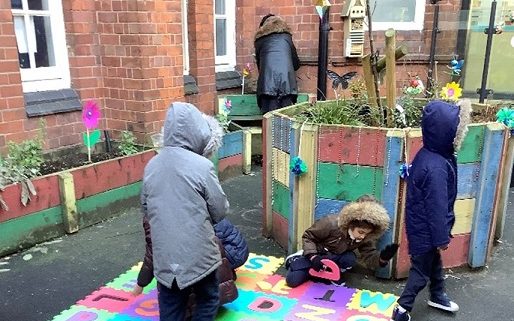
What barriers have you faced?
The biggest barrier is time — cramming it into a packed curriculum and making it meaningful, not just doing it as a one-off. It’s keeping it ticking along throughout the school year and making sure that, year after year, the children are growing up with these issues. We trickle sustainability into the curriculum, especially through geography, science and PSHE.
I’d love to see the children do more events and get out and about more, but costs, time and staffing are the biggest barriers for any school.
How do you overcome these barriers?
I think just going to school leaders and saying that I need time out. They are great and take that on board and give me the staffing and the resources, so that’s a great positive.
For an urban school like ours it’s about saying to staff: we’ve put in place these planters and green spaces, but you need to give this time with a group of children in order to maintain that during the school days.
I would say getting the parents and the wider community involved is important. For the Polli:Gen project, we invited the parents of the children involved in the project and we had a great morning out where they took part in discussion and took photographs. I would like to see more of that because it gets the message out to the wider community about what we’re doing.

How do you decide what projects to take part in?
The children are always at the centre of our decision-making. They are at the heart of our action plan. Through the school council and the eco-team they prioritise what we need, what comes first, second and third. The children tell us what’s important to them, and we take it to the leadership team.
How has the local authority supported you?
They have been great. Right from the start they helped me fill out my Eco-School application and got me onto my first Bronze award. The time they spent with me was amazing, and they continue to support me.
At the drop of an email I can speak to the sustainable schools team. They’ve come into school, looking at what we can do to monitor energy use, what software we can use to reduce our energy use, keeping us informed of funding and projects — it’s been really invaluable. We’ve also done projects with the council where we get together with children at local schools to share initiatives.
I’m just a busy school teacher trying to do my job, and I’m thankful for the links we’ve been given and the contacts that have come our way. The sustainability team at the council do a wonderful job.
Do you think your approach would work in other schools?
Yes. Any school, no matter how big or small, can do what we’re doing. We have shown that even with very limited space there are plenty of activities you can do to get the children engaged with their environment and thinking about sustainability.
